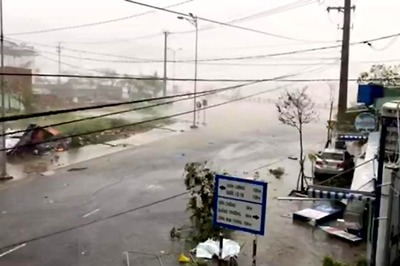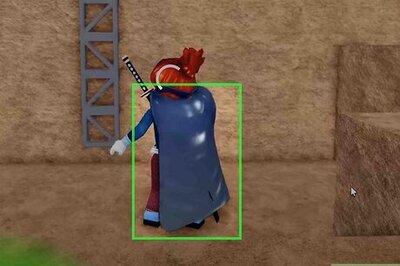
views
Tokyo: Japan's ruling party elected Finance Minister Yoshihiko Noda its new chief on Monday, paving the way for him to be the next prime minister and inherit the daunting task of recovering from the huge tsunami and nuclear crisis.
Noda, 54, is known as a fiscal conservative and has lately been battling a sluggish economy, bulging national debt and the yen's record surge, which hurts Japan's exporters by making their products more expensive overseas.
As prime minister - Japan's sixth in five years - he will have to broaden his scope to deal with the continuing reconstruction from the March 11 quake and tsunami along the northeastern coast and the 100,000 people who remain dislocated because of radiation leaking from a tsunami-damaged nuclear plant.
"Let us sweat together for the sake of the people," he said after the vote. "This is my heartfelt wish."
Noda will replace Prime Minister Naoto Kan, who announced Friday that he is resigning after nearly 15 months in office plagued by public discontent over political infighting and his administration's handling of the disasters.
Noda defeated Trade Minister Banri Kaieda - who was backed by an influential behind-the-scenes party kingpin - in a run-off election 215-177 among ruling party members of parliament after none of the initial five candidates won a majority in the first round. Noda will go on to become prime minister because the Democrats control the more powerful lower house of parliament. His Cabinet will likely be installed later this week.
After the vote, Noda said the three most pressing challenges facing the nations are recovering from the tsunami, bringing to a close the nuclear crisis and dealing with the strengthening of the yen and the deflationary pressure it has put on Japan's economy.
Noda came from behind to win the run-off, getting 102 votes in the first round to Kaieda's 143. The result could be seen as a slap against Ichizo Ozawa, a scandal-tainted party powerbroker who threw his support behind Kaieda.
Ozawa, a 69-year-old veteran who heads the largest faction in the ruling Democratic party, is known for engineering elections, sending novices to parliament and dooming some candidates to defeat. He is embroiled in a political funding scandal but his presence has hung like a shadow over the party leadership campaign.
Ozawa's dislike of Kan was one reason Kan never fully got his party's backing while in power.
After the vote, Noda called for party unity, using a popular rugby term in Japan referring to the tradition that after a game ends, there are no longer opposing sides on the field.
Noda is a staunch supporter of the Japan-U.S. security alliance, which he has called "essential for Japan's security and prosperity." And while praising China's economic development, he has cited concerns about their growing military strength.
Noda is not from an elite background like many Japanese politicians. His father was a member of the Self-Defense Force, Japan's military. He began honing his political skills at a postgraduate institute designed to groom a new generation of progressive leaders.
Before he took on a ministerial post, he was known for standing at train stations in his district in Chiba, just east of Tokyo, every morning to greet commuters personally.
As finance minister since June 2010, Noda has been contending with budgets and a strong yen, which hit a post-World War II high against the dollar earlier this month.
Noda was the most outspoken among the candidates about the need to raise the 5 percent consumption tax to reduce the public deficit, which is twice the country's gross domestic product, but toned down his tax talk ahead of the election. No quick change is expected on taxes, which would need parliamentary approval.
Many Japanese say taxes eventually need to be raised because of costs of disaster recovery and social welfare for an increasingly aging society.
Noda must also deal with a divided parliament, which has increased gridlock, after the opposition won control of the upper house last summer.
Japan has been plagued by rapid turnover in political leadership that has undermined its ability to tackle serious problems. The past five prime ministers lasted about a year each; Kan lasted the longest at nearly 15 months.
Kaieda is the third Democratic leader since the party surged to a landslide victory two years ago, dumping the long-ruling conservative Liberal Democratic Party, amid widespread hope for change. Those hopes have been largely dashed amid public disappointment over scandals and a perceived lack of decisive leadership.




















Comments
0 comment